
Phuentsholing: The Gateway to Bhutan
Phuentsholing, located on the southern border of Bhutan, is a vibrant and bustling town that serves as the main entry point for travelers coming from India. The city is a fascinating blend of cultures, where the traditional Bhutanese lifestyle mingles harmoniously with Indian influences. As you step into Phuentsholing, the first thing that will catch your eye is the grand Bhutan Gate, which symbolizes the threshold to a land of happiness and peace. Phuentsholing is more than just a border town; it is a melting pot of ethnicities and traditions. The streets are lined with colorful markets, where you can find everything from local handicrafts to delicious Bhutanese cuisine. The town is also home to several important Buddhist temples and monasteries, such as the Zangto Pelri Lhakhang, which offers a serene escape from the hustle and bustle of the city. One of the main attractions of Phuentsholing is its picturesque setting. Nestled in the foothills of the Himalayas, the city offers stunning views of lush green mountains and scenic landscapes. The Amo Chhu, or Torsa River, flows gracefully through the town, providing a tranquil backdrop for leisurely strolls. Whether you are a history buff, a nature lover, or simply looking to experience the unique culture of Bhutan, Phuentsholing has something to offer for every traveler.
Local tips in Phuentsholing
- Visit the Bhutan Gate early in the morning to avoid crowds and get the best photos.
- Carry local currency (Ngultrum) as many small shops do not accept international credit cards.
- Dress modestly when visiting temples and monasteries to show respect for local customs.
- Try the local street food, especially momos (dumplings) and ema datshi (chili cheese).
- Hire a local guide to learn more about the history and culture of the area.
Phuentsholing: The Gateway to Bhutan
Phuentsholing, located on the southern border of Bhutan, is a vibrant and bustling town that serves as the main entry point for travelers coming from India. The city is a fascinating blend of cultures, where the traditional Bhutanese lifestyle mingles harmoniously with Indian influences. As you step into Phuentsholing, the first thing that will catch your eye is the grand Bhutan Gate, which symbolizes the threshold to a land of happiness and peace. Phuentsholing is more than just a border town; it is a melting pot of ethnicities and traditions. The streets are lined with colorful markets, where you can find everything from local handicrafts to delicious Bhutanese cuisine. The town is also home to several important Buddhist temples and monasteries, such as the Zangto Pelri Lhakhang, which offers a serene escape from the hustle and bustle of the city. One of the main attractions of Phuentsholing is its picturesque setting. Nestled in the foothills of the Himalayas, the city offers stunning views of lush green mountains and scenic landscapes. The Amo Chhu, or Torsa River, flows gracefully through the town, providing a tranquil backdrop for leisurely strolls. Whether you are a history buff, a nature lover, or simply looking to experience the unique culture of Bhutan, Phuentsholing has something to offer for every traveler.
When is the best time to go to Phuentsholing?
Iconic landmarks you can’t miss
Karbandi Monastery
Discover the tranquility of Karbandi Monastery, a serene Buddhist temple offering breathtaking views and a deep spiritual experience in Phuentsholing, Bhutan.
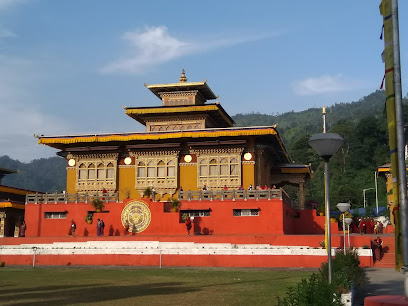
Jaigaon View Point
Experience stunning panoramic views and serene nature at Jaigaon View Point, a must-visit attraction in West Bengal, India.
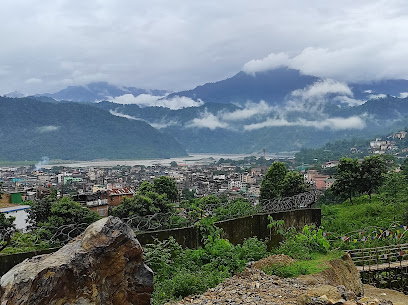
Park Hotel Bhutan
Experience the serene beauty of Bhutan at Park Hotel, where comfort meets culture in the heart of Phuentsholing.
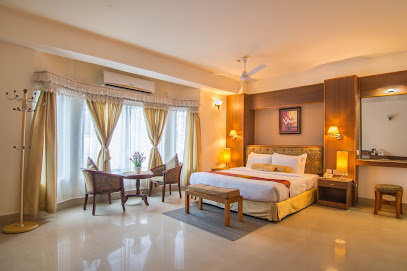
Hotel Druk འབྲུག་ཟ་ཁང་།
Experience the perfect blend of comfort and local culture at Hotel Druk in Phuentsholing, Bhutan's gateway to adventure.

Kizom Cafe Pizzeria & Bakery
Discover Kizom Cafe Pizzeria & Bakery: a delightful blend of pizza, pastries, and local flavors in the heart of Phuentsholing.
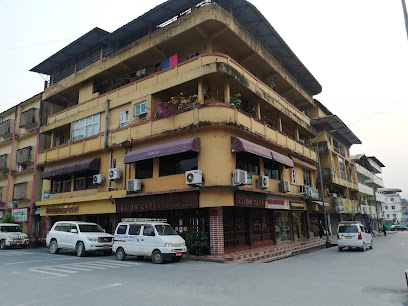
Hotel Palm
Experience the best of Phuentsholing with a comfortable stay at Hotel Palm, where local charm meets modern hospitality.
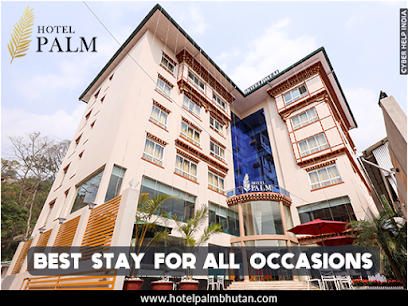
Hotel Tsheringma
Discover Bhutanese hospitality at Hotel Tsheringma, a perfect retreat along Phuentsholing-Thimphu Highway, where comfort meets culture.

MidPoint Hotel
Discover the warmth of Bhutanese hospitality at MidPoint Hotel in Phuentsholing, where comfort meets cultural exploration.
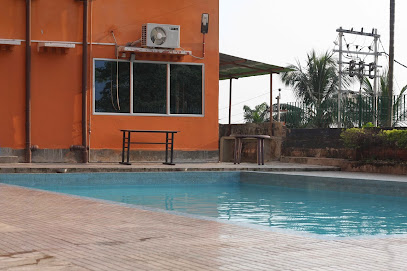
Centennial Hotel 2008
Discover the perfect blend of comfort and culture at the Centennial Hotel in Phuentsholing, your gateway to exploring Bhutan's natural beauty.
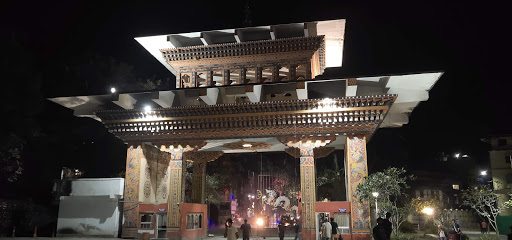
GADHEN HOTEL
Discover comfort and tradition at Gadhen Hotel in Phuentsholing, your gateway to the beauty and culture of Bhutan.

Legphel Hotel
Discover comfort and hospitality at Legphel Hotel, a perfect stay for travelers exploring the beauty of Phuentsholing, Bhutan.

Pasakha picnic spot
Discover the serene Pasakha picnic spot in West Bengal, where nature meets tranquility for the perfect getaway.
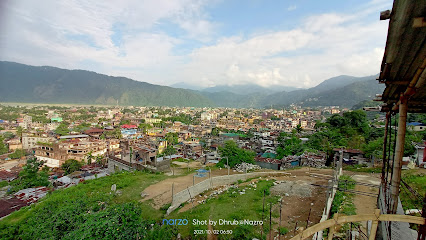
Central Hotel
Experience comfort and convenience at Central Hotel in Phuentsholing, your perfect base to explore Bhutan's vibrant culture and stunning landscapes.

METO PEMA HOTEL
Discover modern comfort and traditional hospitality at Meto Pema Hotel, your ideal base for exploring Phuentsholing, Bhutan.
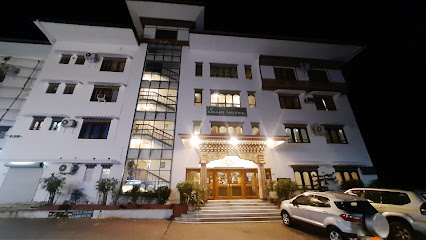
Pelri hotel
Discover the comfort and cultural richness of Pelri Hotel, your perfect stay in Phuentsholing, Bhutan.
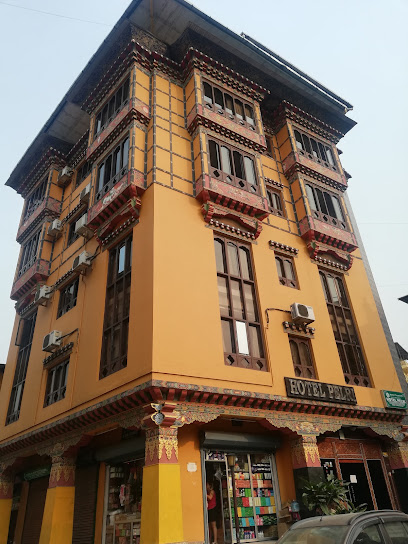
Unmissable attractions to see
Karbandi Monastery
Experience the serene beauty and spiritual richness of Karbandi Monastery, a top tourist attraction in Phuentsholing, Bhutan.
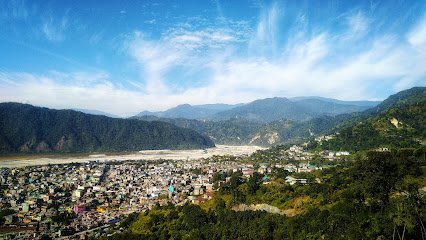
Jaigaon View Point
Experience breathtaking views and serene nature at Jaigaon View Point, a hidden gem in West Bengal perfect for relaxation and photography.
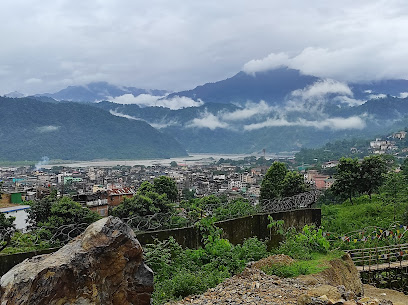
Zangtopelri
Discover the tranquil beauty and rich spirituality of Zangtopelri, a must-visit Buddhist temple in Phuentsholing, Bhutan, where culture and serenity meet.
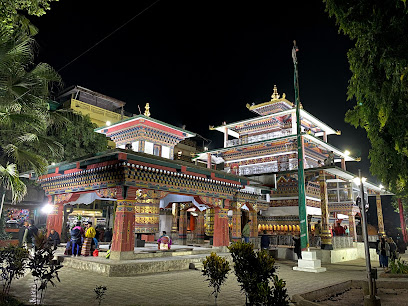
Torsa River View Point, Jaigaon
Experience the tranquility of Torsa River View Point in Jaigaon, where breathtaking views meet serene landscapes, ideal for nature lovers and adventurers.
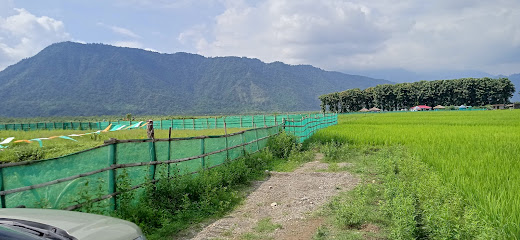
Pasakha Picnic Spot
Discover the tranquility of Pasakha Picnic Spot in West Bengal, a perfect destination for nature lovers and picnic enthusiasts alike.
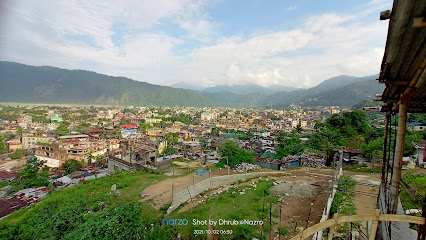
Alapan's View Point
Discover the breathtaking beauty of Alapan's View Point in Phuentsholing, Bhutan - a perfect retreat for nature lovers and photographers alike.
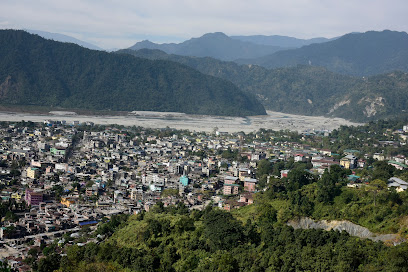
J-Town
Experience the vibrant culture, stunning landscapes, and rich traditions of J-Town, a hidden gem in West Bengal, perfect for your next adventure.
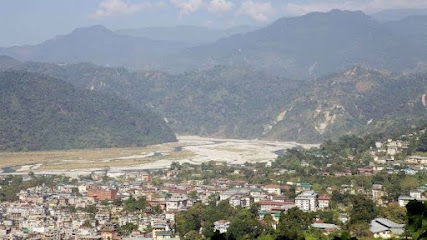
I Love Jaigaon selfie zone
Discover the vibrant I Love Jaigaon selfie zone, where creativity meets culture, and capture unforgettable memories in stunning backdrops.
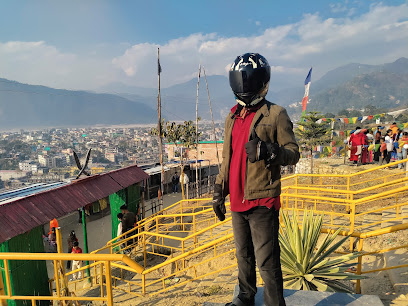
Daragaon View Point
Discover the breathtaking vistas at Daragaon View Point, a serene escape in Jaigaon, West Bengal, perfect for nature lovers and photographers alike.
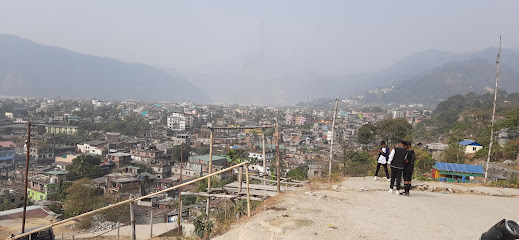
View point sorchen
Discover breathtaking panoramic views and serene landscapes at Sorchen View Point, a hidden gem in Phuentsholing, Bhutan.
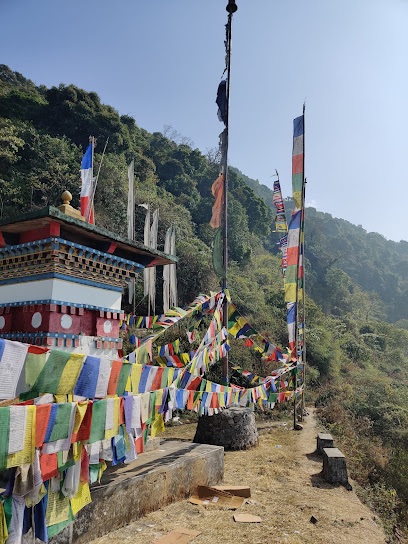
Khokhla Basti
Experience the serene beauty of Khokhla Basti, a hidden gem in West Bengal, surrounded by lush tea gardens and local culture.
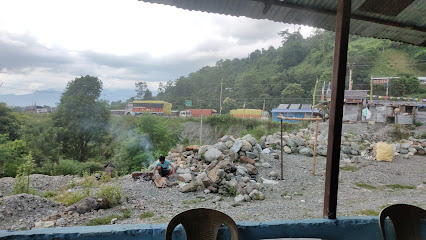
Central Park
Discover the beauty of Central Park in Phuentsholing, a lush green escape perfect for relaxation, picnics, and cultural experiences.
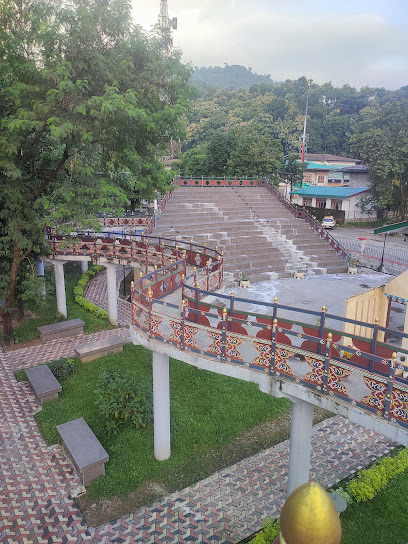
Pasakha river view point
Discover the breathtaking views and serene atmosphere of Pasakha River View Point in Phuentsholing, a hidden gem perfect for nature lovers and photographers.
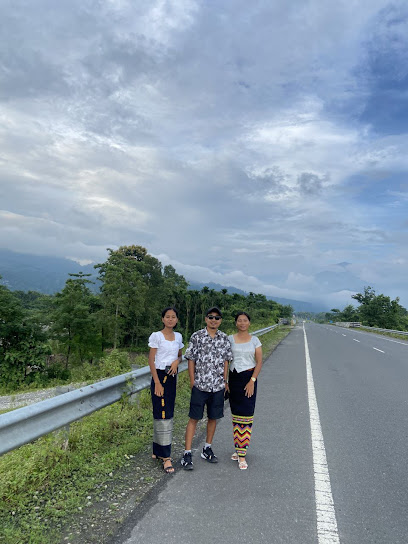
Flyover Bridge Phuntsholing Thomdre
Discover the tranquil beauty of Flyover Bridge Phuntsholing Thomdre, a perfect park to unwind and enjoy stunning landscapes in Bhutan's vibrant town.
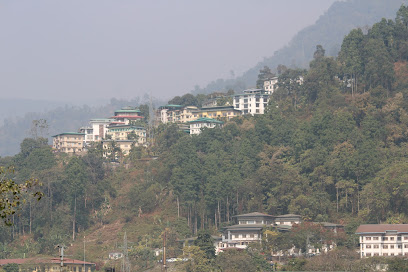
Chrocodile Museum
Explore the Crocodile Museum in Phuentsholing, a captivating destination for wildlife enthusiasts and families, showcasing the wonders of crocodiles.

Essential places to dine
Zen Restaurant
Experience authentic Bhutanese cuisine in a serene setting at Zen Restaurant in Phuentsholing.
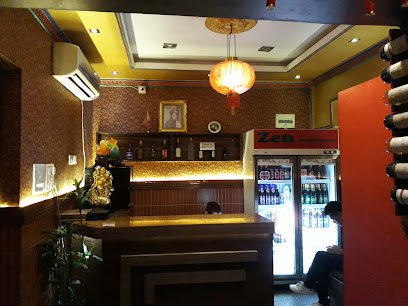
kuenga Hotel
Savor authentic Bhutanese flavors and international cuisine at Kuenga Hotel in Phuentsholing - where culinary delights meet warm hospitality.
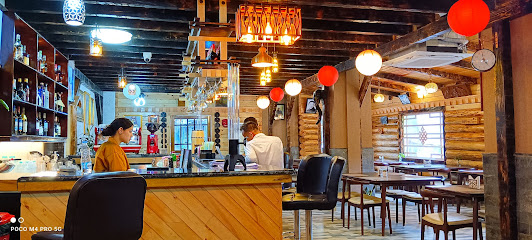
NEC Restaurant
Discover the flavors of Bhutan at NEC Restaurant in Phuentsholing - where local meets international cuisine in a welcoming atmosphere.
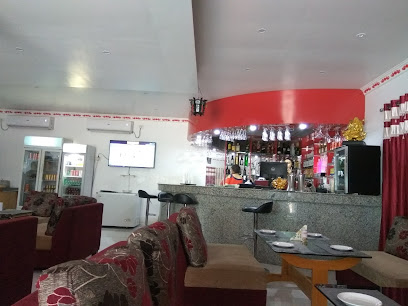
Phuentsholing Socials Restaurant and Bar
Experience the best of Bhutanese hospitality at Phuentsholing Socials Restaurant and Bar with exquisite cuisine and delightful ambiance.
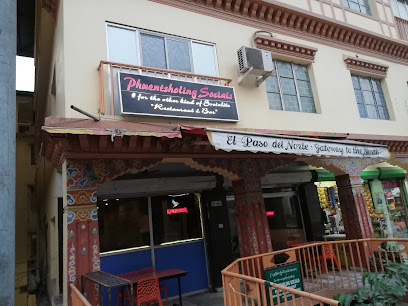
Oasis
Experience the flavors of Bhutan at Oasis in Phuentsholing, where local ingredients meet global cuisine in a warm and welcoming atmosphere.
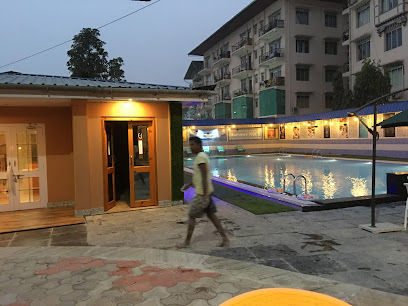
Drezang restaurant
Experience authentic Bhutanese cuisine at Drezang Restaurant in Phuentsholing, where every dish tells a story.
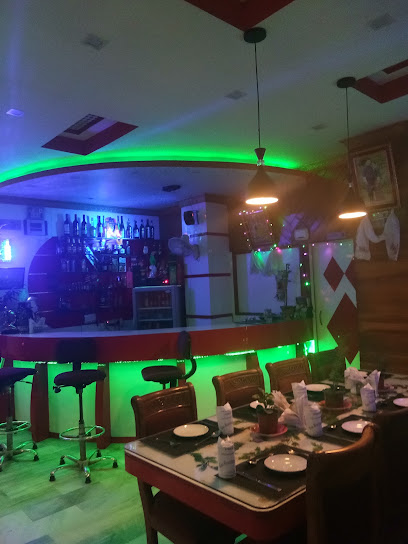
Chick A zaa HQ Phuntsholing
Discover delicious local and international cuisine at Chick A Zaa HQ in Phuntsholing - a culinary gem for every traveler.
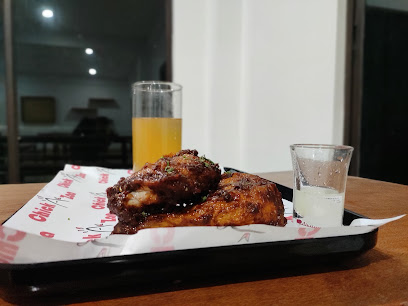
Upstairs kitchen
Discover the authentic flavors of Bhutan at Upstairs Kitchen in Phuentsholing - where every dish tells a story.
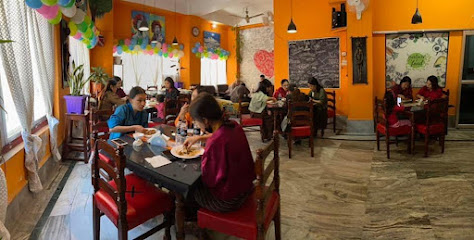
Thakali Kitchen
Discover authentic Bhutanese flavors at Thakali Kitchen in Phuentsholing - a culinary gem offering traditional dishes in a warm atmosphere.
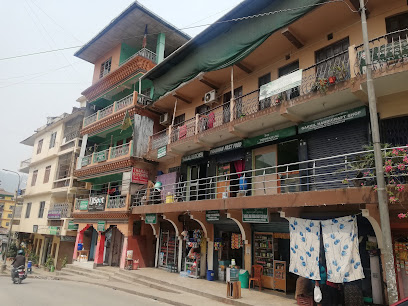
Momo House
Experience authentic Bhutanese cuisine at Momo House in Phuentsholing – home of delicious momos and warm hospitality.
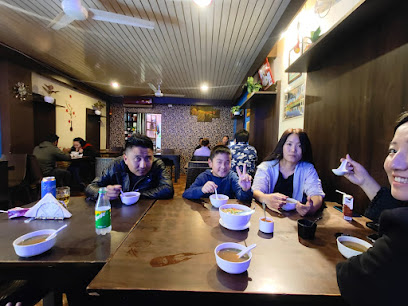
Hungrella Restaurant
Discover authentic Bhutanese flavors at Hungrella Restaurant in Phuentsholing – where every dish tells a story.
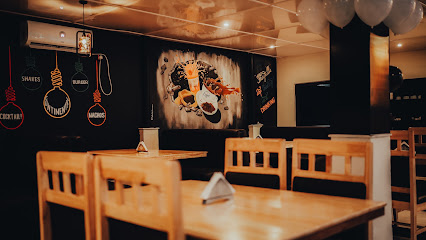
Zomkey restaurant and bar
Discover delicious local and international dishes at Zomkey Restaurant and Bar in Phuentsholing - an unforgettable dining experience awaits you.
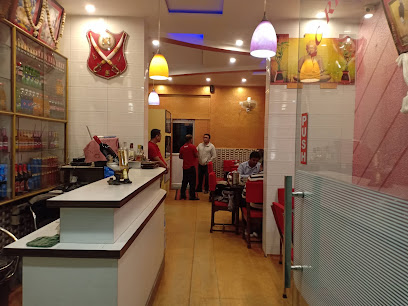
Om Restaurant
Experience the flavors of Bhutan at Om Restaurant in Phuentsholing – where local cuisine meets global tastes in an inviting atmosphere.
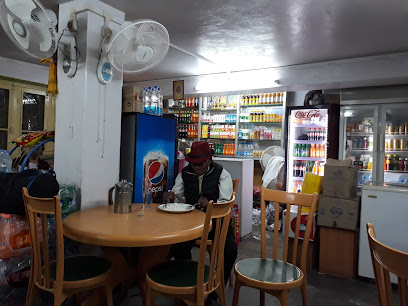
Restaurant
Experience authentic Bhutanese cuisine at this inviting restaurant in Phuentsholing, right by the bustling Pedestrian Terminal.
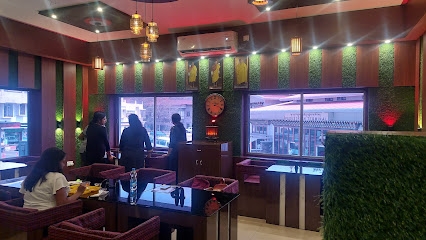
Ashoke Hotel
Experience authentic Bhutanese flavors at Ashoke Hotel – a culinary haven in Phuentsholing offering delightful dishes and warm hospitality.
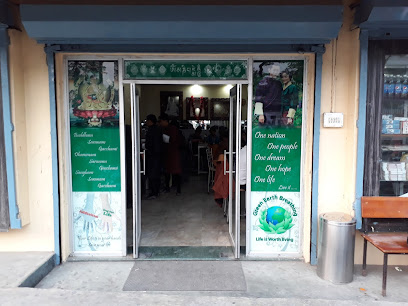
Markets, malls and hidden boutiques
Indane - Tashi Commercial Corporation
Explore Indane - Tashi Commercial Corporation in Phuentsholing, where diverse shopping experiences meet local Bhutanese culture in an affordable setting.
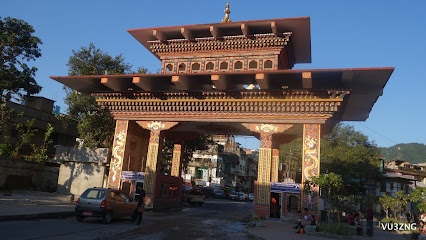
C.N WINE SHOP
Explore a delightful selection of local and international wines at C.N Wine Shop in Phuentsholing, a must-visit destination for wine lovers.
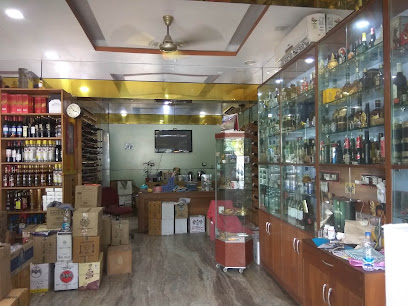
Kumar And Sons
Discover unique clothing and cultural treasures at Kumar And Sons, Phuentsholing's premier clothing store, perfect for tourists seeking local fashion.
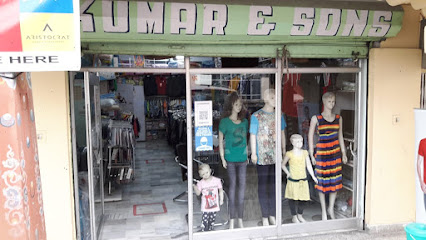
Jain Metal Store
Explore Jain Metal Store in Phuentsholing for exquisite Bhutanese metal crafts and unique souvenirs that embody local artistry and culture.
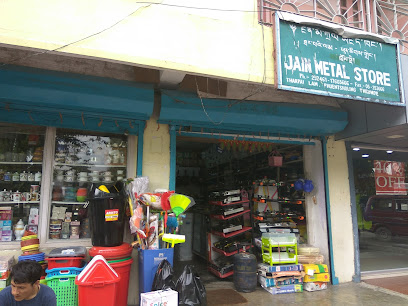
Vegetable Market
Experience the vibrant colors and flavors of Bhutan at Phuentsholing's bustling Vegetable Market, a true cultural gem for every tourist.

Bhutan Duty Free Shop - Phuentsholing
Discover tax-free shopping at Bhutan Duty Free Shop in Phuentsholing, where culture meets luxury in a unique retail experience.
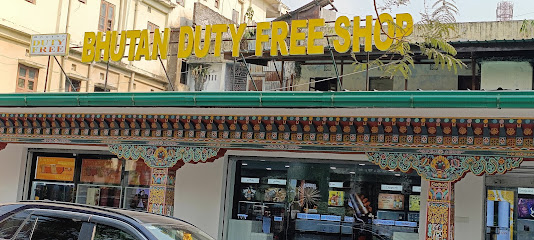
Miniso Bhutan Phuntsholing
Explore Miniso Bhutan in Phuntsholing for quality home goods, unique gifts, and an unforgettable shopping experience that blends modern style with local charm.
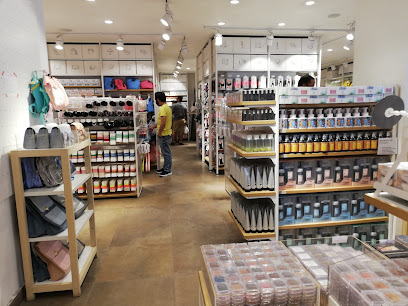
Shop 7
Discover the unique flavors of Bhutan at Shop 7 in Phuentsholing, where local products meet exceptional service.
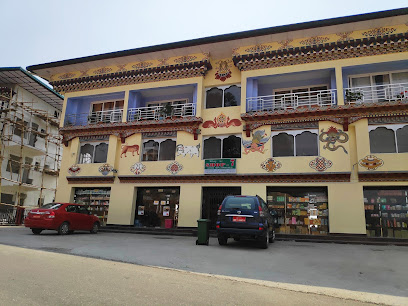
Anil Store
Discover the essence of Bhutanese fashion and handicrafts at Anil Store in Phuentsholing, a must-visit destination for tourists seeking unique souvenirs.
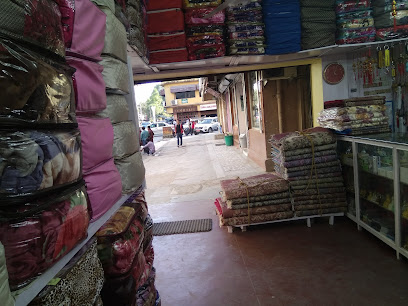
Tara Emporium
Explore Tara Emporium in Phuentsholing for unique Bhutanese fashion with a modern twist, offering quality clothing and warm service.
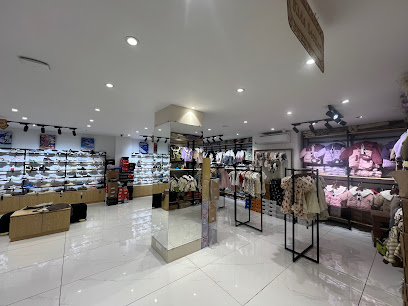
Tashi Handicraft
Explore Tashi Handicraft in Phuentsholing for exquisite jewelry and authentic Bhutanese handicrafts, a perfect blend of tradition and artistry.
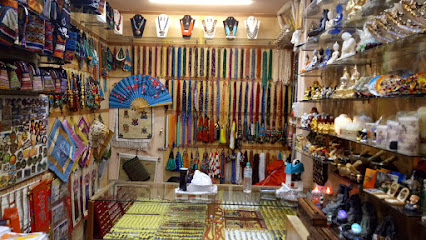
Koja Phuentsholing
Explore Koja Phuentsholing, your go-to gift shop for authentic Bhutanese treasures and unique souvenirs in the heart of Phuentsholing.
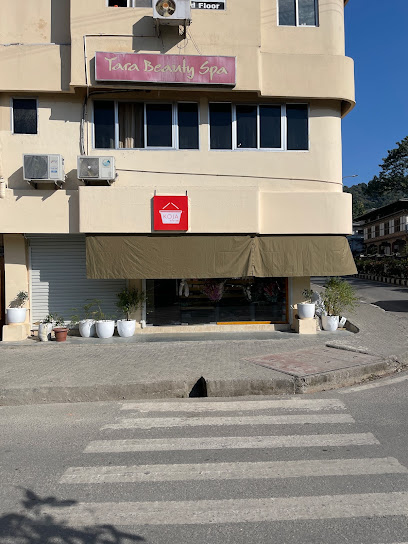
Manoj Trading.
Explore the rich tapestry of Bhutanese fashion at Manoj Trading, your go-to clothing store in Phuentsholing, offering unique styles and friendly service.
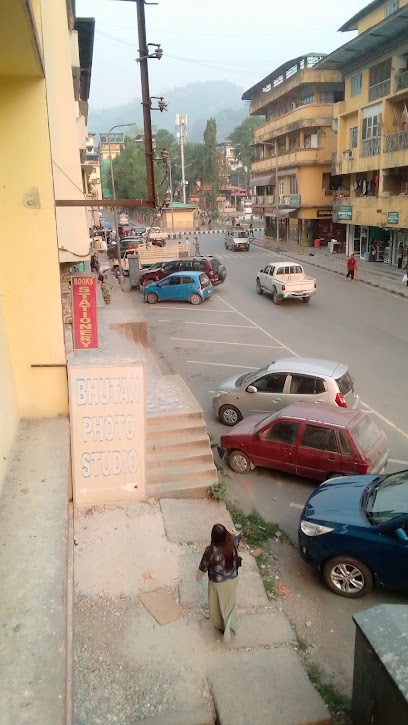
DC Mart
Explore DC Mart in Phuentsholing for unique home goods and authentic Bhutanese handicrafts, perfect for souvenirs or everyday essentials.
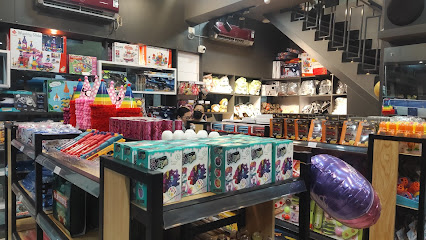
Norzang Baby centre
Explore the vibrant collections at Norzang Baby Centre, Phuentsholing's premier destination for children's clothing and accessories.
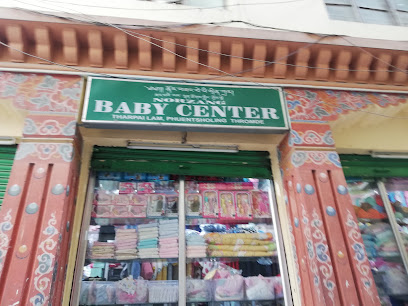
Essential bars & hidden hideouts
Phuentsholing Socials Restaurant and Bar
Experience the vibrant flavors of Bhutan at Phuentsholing Socials Restaurant and Bar, where culinary delight meets a lively atmosphere.
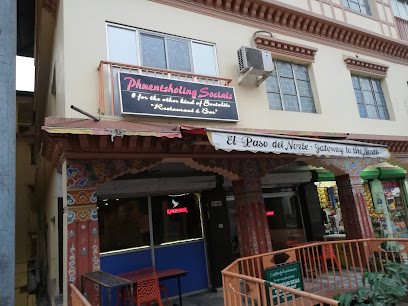
High Beats
Experience the vibrant nightlife at High Beats, Phuentsholing's premier live music bar, blending local culture with entertainment.
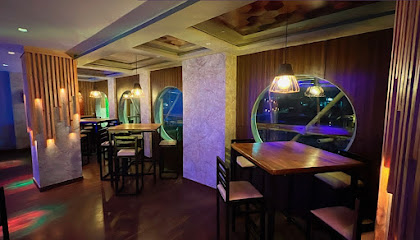
TDC
Discover TDC in Phuentsholing - a vibrant bar blending local culture with modern relaxation, perfect for unwinding after your adventures.
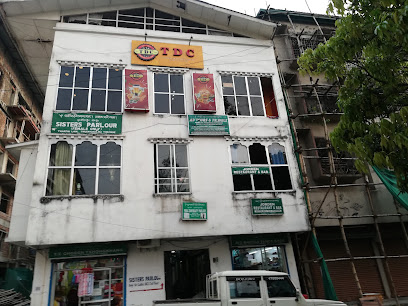
Top Shoot Snooker Bar And Karaoke
Experience vibrant nightlife at Top Shoot Snooker Bar and Karaoke in Phuentsholing, where snooker meets sing-along fun.
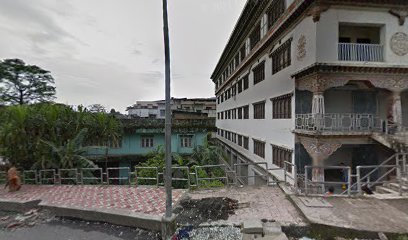
The NEST RESTAURANT Phuntsholing Lower Market
Experience the lively ambiance and exceptional drink selection at The NEST RESTAURANT in Phuntsholing, a local favorite for relaxation and socializing.
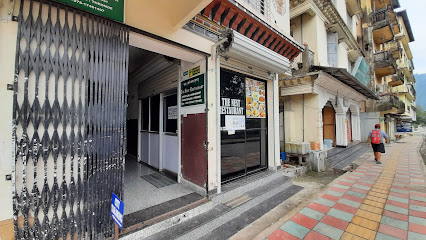
Liquid Therapy
Discover the vibrant atmosphere of Liquid Therapy in Phuentsholing, where relaxation meets unique beverage experiences.
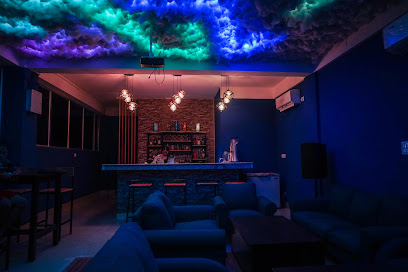
SANGAY KARAOKE BAR
Experience the vibrant nightlife of Phuentsholing at Sangay Karaoke Bar, where every night is a celebration of music and fun.
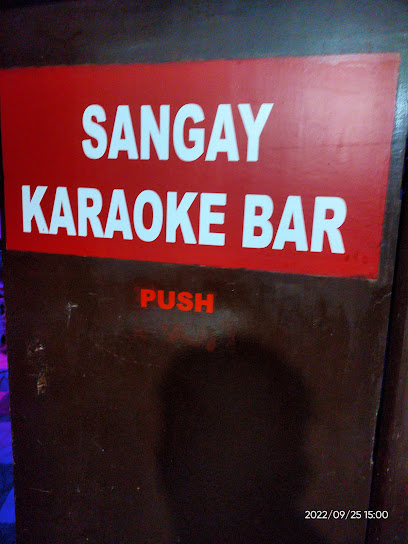
Tshangpa Drayang
Discover a vibrant nightlife at Tshangpa Drayang in Phuentsholing, where local flavors meet international drinks in a lively atmosphere.
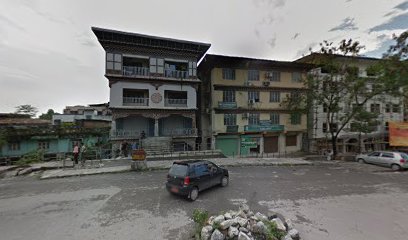
Mig Cinema Canteen
Experience the local culture at Mig Cinema Canteen, a vibrant bar in Phuentsholing known for its friendly atmosphere and unique drinks.
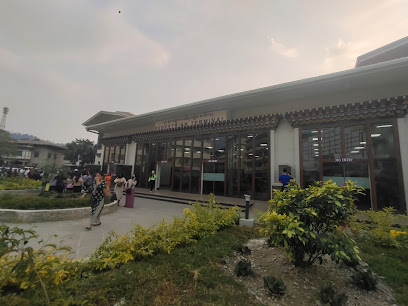
Yummy Express Bar Cafe
Experience the vibrant flavors of Bhutan at Yummy Express Bar Cafe, a cozy spot in Phuentsholing offering delightful local and international cuisine.
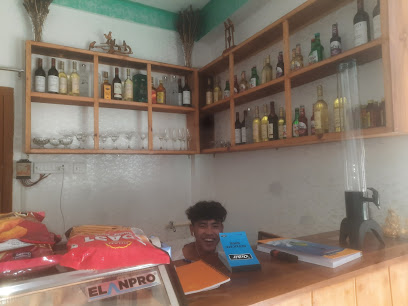
Tara Restaurant And Bar
Experience authentic Bhutanese cuisine in Phuentsholing at Tara Restaurant And Bar, where flavors and hospitality unite.
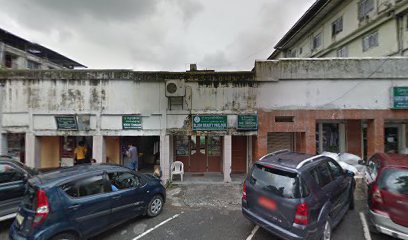
Gawa Karaoke
Discover the vibrant nightlife at Gawa Karaoke, where every note brings joy and unforgettable memories in Phuentsholing.
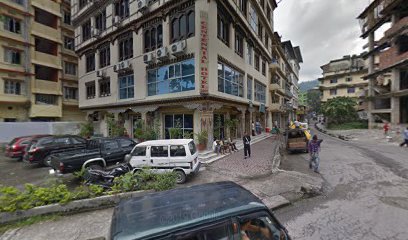
Tongpa
Experience the vibrant nightlife at Tongpa, Phuentsholing's beloved bar, offering a unique blend of local spirits and an inviting atmosphere.
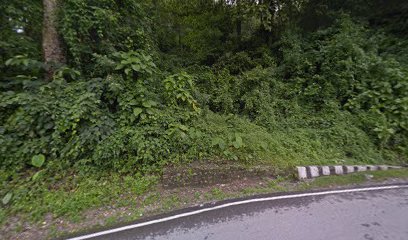
Food villa restaurant
Discover the flavors of Bhutan at Food Villa, where traditional cuisine meets a warm, inviting atmosphere in Phuentsholing.
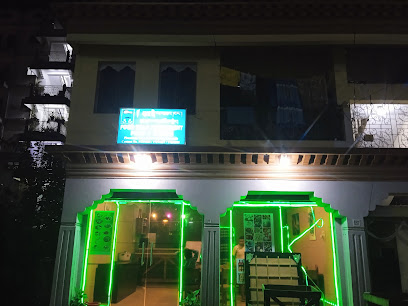
Local Phrases
-
- Helloཇོ ཇོ
[jo jo] - Goodbyeཞལ་གསལ
[zhal gsall] - Yesཡག་པ་
[yag pa] - Noམ མ་
[ma ma] - Please/You're welcomeདེ་ན་ དེ ཨེ་
[de na de ae] - Thank youབཤད་སཏ
[shey ta] - Excuse me/Sorryནས་པར་
[na par] - How are you?ཁ སད་ས་ ར་
[kha sad sa ra] - Fine. And you?ལྟ་ལྟ་ར་་ ར་ ཞང་ཡག་
[tta tta ra zhang yag] - Do you speak English?ཨིན་གྲུལ་གསལ་ར་ ལྟ་ནི་ར་མ་?
[in drul gsall ra la ni ra ma?] - I don't understandའཛིན་དགས་མ་ཡང་ཡང་
[dzin druk ma yang yang]
- Helloཇོ ཇོ
-
- I'd like to see the menu, pleaseམ་ལས་སང་སང་ དཔེ་ཨེའི་ཨེམསས་ མ་ལས་སང་སང་
[ma la sang sang de ae aemsa ma la sang sang] - I don't eat meatམ་མིན་མ་མས་ཡག་
[ma min ma ma yag] - Cheers!བསས་
[bay] - I would like to pay, pleaseམ་ལས་སང་སང་ ང་བས་ཡང་ཡང་
[ma la sang sang nga bay yang yang]
- I'd like to see the menu, pleaseམ་ལས་སང་སང་ དཔེ་ཨེའི་ཨེམསས་ མ་ལས་སང་སང་
-
- Help!གསས་
[gsa] - Go away!ལ་རས་
[la ras] - Call the Police!ལྟ་བཀས་མ་ལ་བས་
[ta pak ma la bay] - Call a doctor!ལྟ་ཨོག་ཏིརས་མ་ལ་བས་
[ta og tir ma la bay] - I'm lostམ་སས་ཇོརས་
[ma sa jo ras] - I'm illམ་རོག་
[ma rok]
- Help!གསས་
-
- I'd like to buy...མ་ལས་སང་སང་ ང་བཡ་ཨེའི་
[ma la sang sang nga bay ae] - I'm just lookingམ་ལས་སང་སང་ ང་རོག་
[ma la sang sang nga rok] - How much is it?ཁ མས་མ་དོ་བཡ་?
[kha ma ma do bay?] - That's too expensiveམ་རས་རོག་མ་མས་མ་
[ma ras rok ma ma ma] - Can you lower the price?ཁ མས་མ་སས་མ་མས་མ་?
[kha ma ma sa ma ma ma?]
- I'd like to buy...མ་ལས་སང་སང་ ང་བཡ་ཨེའི་
-
- What time is it?ཁ རས་སལ་མ་མས་?
[kha ra sal ma ma?] - It's one o'clockཨཨང་ རས་
[ang ra] - Half past (10)ཁག་ཟར་ (10)
[khak zar (10)] - Morningརིར་ཞང་
[rir zhang] - Afternoonཁ མིས་མ་
[kha mis ma] - Eveningཆེ ཡག་མ་
[che yag ma] - Yesterdayམ་མས་ནས་
[ma mas na] - Todayཡེ་ཡག་
[ye yag] - Tomorrowགསས་རང་
[gsa rang] - 11
[1] - 22
[2] - 33
[3] - 44
[4] - 55
[5] - 66
[6] - 77
[7] - 88
[8] - 99
[9] - 1010
[10]
- What time is it?ཁ རས་སལ་མ་མས་?
-
- Where's a/the...?ཁ དང་མ་ ཡང་ཡང་?
[kha dang ma yang yang?] - What's the address?ཁ ཐབ་ར་སཏ་ ཡང་ཡང་?
[kha thab ra ta yang yang?] - Can you show me (on the map)?ཁ ན ནས་མ་མ་མ་?
[kha na na ma ma ma?] - When's the next (bus)?ཁ ལྟ་ནི་སཏ་ ཡང་ཡང་?
[kha ta ni ta yang yang?] - A ticket (to ....)ཨ ཐིཀག་ (to ....)
[a tikag (to ....)]
- Where's a/the...?ཁ དང་མ་ ཡང་ཡང་?
History of Phuentsholing
-
Phuentsholing, located in the southern part of Bhutan, has its roots deeply embedded in history. The area served as an important trade route between Bhutan and neighboring India. The name 'Phuentsholing' itself is derived from the Bhutanese words 'Phuen' meaning 'hills' and 'Tsholing' meaning 'meeting place,' indicating its historical role as a trade hub.
-
In the mid-20th century, Phuentsholing began to develop more rapidly as Bhutan opened up to the outside world. Positioned on the border with India, the town became a focal point for cross-border trade and commerce. This period saw significant infrastructural development, including the establishment of roads and administrative buildings.
-
The 1949 Bhutan-India Friendship Treaty marked a significant moment in the history of Phuentsholing. The treaty facilitated closer economic and political ties between the two countries, fostering an environment of cooperation that contributed to Phuentsholing's growth as a thriving border town. The treaty allowed for free trade and movement, further integrating Phuentsholing into the regional economy.
-
Phuentsholing's unique position at the border has made it a cultural melting pot. The town is home to a diverse population that includes Bhutanese, Indians, and Nepalese, among others. This cultural diversity is reflected in the variety of languages spoken, cuisines enjoyed, and festivals celebrated. Phuentsholing serves as a microcosm of Bhutan's broader cultural landscape.
-
Today, Phuentsholing is one of Bhutan's most important economic centers. It houses numerous industries, including manufacturing and trading companies, that contribute significantly to the national economy. The town is also a gateway for tourists entering Bhutan, making it a crucial point of entry for the country's burgeoning tourism sector.
-
In recent decades, Phuentsholing has undergone significant modernization. New shopping complexes, educational institutions, and healthcare facilities have been established. The town's infrastructure continues to improve, making it a more convenient and attractive destination for both residents and visitors.
Phuentsholing Essentials
-
Phuentsholing is a border town in southern Bhutan, adjacent to the Indian town of Jaigaon in West Bengal. The nearest airport is Bagdogra Airport in India, about 170 kilometers away. From Bagdogra, you can take a taxi or a bus to Jaigaon, and then cross the border on foot to Phuentsholing. Alternatively, you can take a train to Hasimara Railway Station, which is about 18 kilometers from Phuentsholing. From Hasimara, taxis and buses are available to reach the border town.
-
Phuentsholing is a relatively small town, and many of its attractions are within walking distance. For longer trips within the town, taxis are readily available and inexpensive. Shared taxis and buses operate between Phuentsholing and other Bhutanese towns, such as Thimphu and Paro. Buses are a cost-effective way to travel, but they can be crowded. Renting a car with a driver is a convenient option for exploring the surrounding areas.
-
The official currency in Bhutan is the Bhutanese Ngultrum (BTN), which is pegged to the Indian Rupee (INR). Indian Rupees are also widely accepted in Phuentsholing. Credit cards are accepted in some hotels, restaurants, and shops, but it is advisable to carry cash, especially for smaller establishments. ATMs are available in Phuentsholing, but it is wise to withdraw sufficient cash before traveling to more remote areas.
-
Phuentsholing is generally a safe destination for tourists. However, as with any travel destination, it is advisable to take standard precautions. Avoid walking alone at night in unfamiliar areas and keep an eye on your belongings in crowded places, such as markets and bus stations. There are no specific high-crime areas targeting tourists, but staying vigilant and aware of your surroundings is always a good practice.
-
In case of emergency, dial 113 for police assistance or 112 for medical emergencies. Phuentsholing has a local police station and a hospital to handle medical emergencies. It is recommended to have travel insurance that covers medical emergencies. For minor health issues, there are pharmacies in the town where you can purchase over-the-counter medications.
-
Fashion: Do dress modestly, especially when visiting religious sites. Avoid wearing revealing clothing. Religion: Do respect local customs and traditions. Always cover your head when entering temples and monasteries. Public Transport: Do be respectful and give up your seat to elderly passengers. Don't eat or drink on public transport. Greetings: Do greet people with a handshake or a slight bow. Using both hands to give or receive items is a sign of respect. Eating & Drinking: Do try local delicacies and accept food offerings graciously. Don’t refuse hospitality, as it is considered impolite.
-
To experience Phuentsholing like a local, visit the local markets where you can buy fresh produce, handicrafts, and traditional Bhutanese goods. Engage with locals, who are often friendly and willing to share stories about their culture. Don’t miss visiting the Zangto Pelri Lhakhang, a beautiful temple in the heart of the town. For a unique experience, take a walk along the Amo Chhu Crocodile Breeding Centre and enjoy the serene surroundings. Try the local street food, such as momos and ema datshi, to get a taste of Bhutanese cuisine.
Nearby Cities to Phuentsholing
-
Things To Do in Paro
-
Things To Do in Thimphu
-
Things To Do in Wangdue Phodrang
-
Things To Do in Gangtok
-
Things To Do in Punakha
-
Things To Do in Siliguri
-
Things To Do in Darjeeling
-
Things To Do in Rangpur
-
Things To Do in Trongsa
-
Things To Do in Bumthang
-
Things To Do in Jakar
-
Things To Do in Mongar
-
Things To Do in Trashigang
-
Things To Do in Guwahati
-
Things To Do in Namche Bazaar







